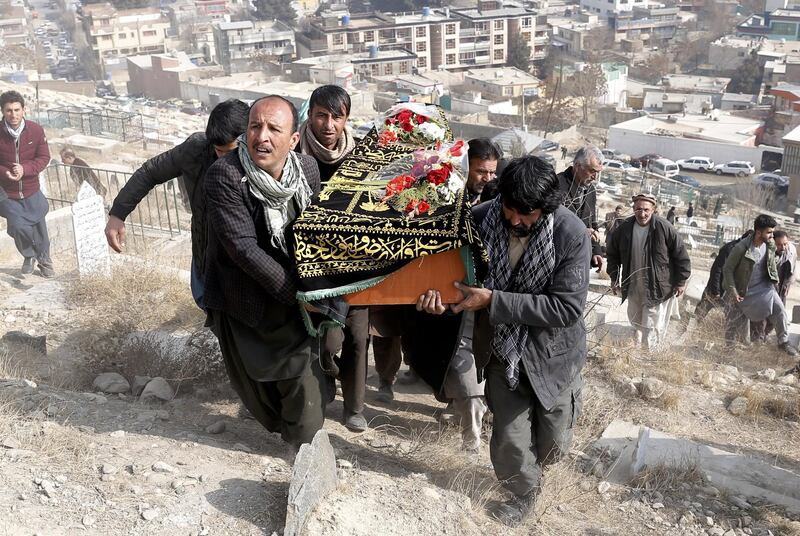There is a gut-wrenching familiarity to the barbaric attack in Kabul yesterday. A Taliban suicide bomber guided an ambulance packed with explosives through a security checkpoint, detonating in a so-called secure zone that houses government agencies, foreign embassies and shops, after telling police he was taking a patient to a nearby hospital. At least 100 people died and more than 158 were injured. Questions will rightly be asked about how he passed so easily through a checkpoint where cars are usually searched and drivers' identities checked. US President Donald Trump described the attack as "despicable", while the International Committee of the Red Cross said it "could amount to perfidy under International Humanitarian Law". The use of an ambulance is particularly harrowing; as medical teams rushed to the scene, jittery security forces became suspicious, perhaps slowing the emergency response. More than 16 years into the war in Afghanistan – and three years after then-president Barack Obama officially ended it – many in Washington's military establishment felt they had turned a corner in the fight against the Taliban. Yesterday's heinous attack demonstrates that the group can still stage mass-casualty strikes at will.
This is Kabul's deadliest attack since a truck bomb near the German embassy killed 150 people last May. But it is the third this month. A week ago, Taliban militants stormed the luxury Intercontinental Hotel in the capital, killing 22 people, while on Wednesday ISIL slaughtered six at the offices of Save the Children, a British charity. The Taliban thrive on sowing terror. And while the Afghan people are historically resilient, their leaders are less so. It has long been clear that denying the Taliban the legitimacy it seeks in Afghanistan will require better governance, more transparency and a stronger security apparatus. Instead, the government of President Ashraf Ghani is plagued by infighting, while Afghanistan ranks 169 out of 176 in Transparency International's Corruption Perceptions Index. Army morale, in turn, is very low. Against the spectre of a resurgent Taliban, Mr Ghani is presiding over a failing state. Were it not for the support of the US, his government would likely have fallen years ago.
Nevertheless, this is a cross-border problem. The Taliban and the affiliated Haqqani network – which may have played a role in yesterday's attack – have exploited weak security in neighbouring Pakistan. As a result, the Taliban is able to attack Afghan government strongholds in spite of increased US airstrikes and more backing for the Afghan army. Behind this struggle lies a key issue: the two sides have opposing measurements of success. While the US must wipe out its enemies, the Taliban must outwait them. Although Mr Trump recently punished Islamabad for its inaction by slashing its security aid, a novel approach is now required that involves Washington and Islamabad. But today, as the dust begins to settle, we condemn this abhorrent crime and pause to think of its victims and the families that will mourn them.





